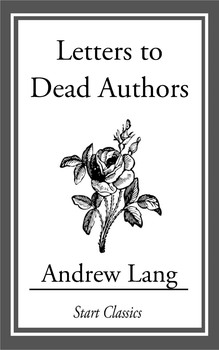LETTER–To Lucian of Samosata
byLetter to Lucian of Samosata opens with an image of that fabled land where souls of laughter dwell undisturbed, where you, Lucian, might now be delighting in an endless banquet of irony, jest, and philosophical banter. One imagines Heine tossing witty remarks like grapes across the table, while Plato, no longer forced to defend his forms, smiles indulgently at your mockery of solemn pretenders. In that imagined island of light, you sit beside Voltaire and Rabelais, not as rivals, but as fellow craftsmen of laughter’s truth. The burdens of flesh and empire long discarded, there is only the sharp clarity of thought and the joy of knowing how little all men know. Here, the folly of kings and the solemnity of sages are remembered only to be laughed at again, freshly and eternally. The charm of your irony was not its cruelty but its courage—a mirror offered, not a sword drawn.
Yet here on earth, the tone has soured, and your voice is missed. We drown in half-truths wrapped in jargon, ideologies paraded like ancient mysteries, and scholars who fear to laugh. Your old foes, the puffed philosophers and fake prophets, have multiplied in number, speaking now not in togas but in headlines and hashtags. They sell inspiration in bottles, manifestos in reels, and call it revelation. A Lucian among them would not rage; he would chuckle, lifting the veil with ease, showing the gods to be mannequins draped in borrowed divinity. You taught that belief without laughter is a trap, and that even truth must be questioned, gently, with wit. The same blind spots you exposed in temple courts now appear in newsrooms and self-help seminars, their new robes no better tailored than the old.
You would have marveled at the new oracles—men and women dispensing wisdom in thirty-second bursts, promising eternal joy in exchange for followers. Even in ancient markets, truth had a price, but now it is sold as fast fashion. The auction of philosophers you once imagined is now livestreamed daily, each voice vying for attention, not clarity. These sages speak not of the soul, but of brand alignment, not of the cosmos, but of personal growth algorithms. To summon your laughter here would be a relief; not cruel, not superior, but freeing. We have forgotten that irony protects truth better than armor, and your quill, dipped in humor, did more than sword or sermon ever could.
Perhaps, Lucian, your old friend Rabelais has at last seen the Coqcigrues arrive—beings of absurdity whose feathers are stitched from overregulation, misplaced zeal, and bureaucratic fog. When Pantagruel walked among us, giants were known by the size of their questions. Now, the land is ruled by pygmies of purpose, handing out rules instead of joy. A carnival of reformers shouts over one another, claiming virtue while trampling delight. Health gurus condemn feasting, reformers ban laughter, and committees meet to outlaw joy as unproductive. The battle now is not over truth, but tone. One must not jest. One must not offend. One must walk straight through a minefield of good intentions laid by the earnest and unthinking.
Would you not laugh? Or weep—if tears had place in your land of laughter? The world you once parodied now parodies itself, and yet dares not admit the joke. In your dialogues, the gods themselves blushed at your mockery, knowing you meant not malice, but medicine. You never scorned belief—only pretension. You did not reject meaning, only those who sold it. In your writing, wisdom walked in sandals and smiled with crooked teeth. Today, truth wears polished shoes and frowns in every photograph. Your return, even as a voice on the wind, would be more healing than any dogma dispensed on a morning talk show.
Still, some learn. In the quiet corners of study, your words survive, not dusty but electric. A reader stumbles upon your dialogue and feels the jolt—this is not mockery for mockery’s sake, but for freedom’s. It is not cynicism, but clarity. It is not denial of virtue, but a defense against its false pretense. We have enough sermons; what we lack is perspective. And humor, Lucian, is perspective made gentle.
Perhaps that is your true gift—not in making fools of others, but in helping us see the fool within ourselves without despair. To laugh and then to think. To doubt and still to love. The wise who fear laughter are never wise for long. So let your shade remain where mirth still lives, surrounded by those who knew that joy and skepticism are not enemies but allies. If the world deserves saving, it is not by grave voices, but by kind ones who dare to smile.

